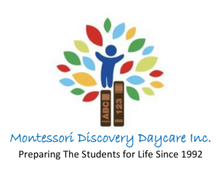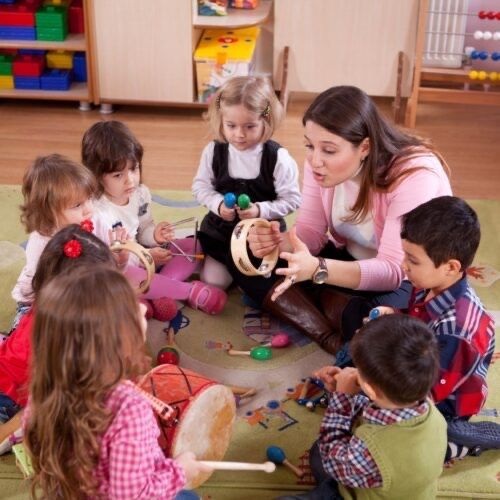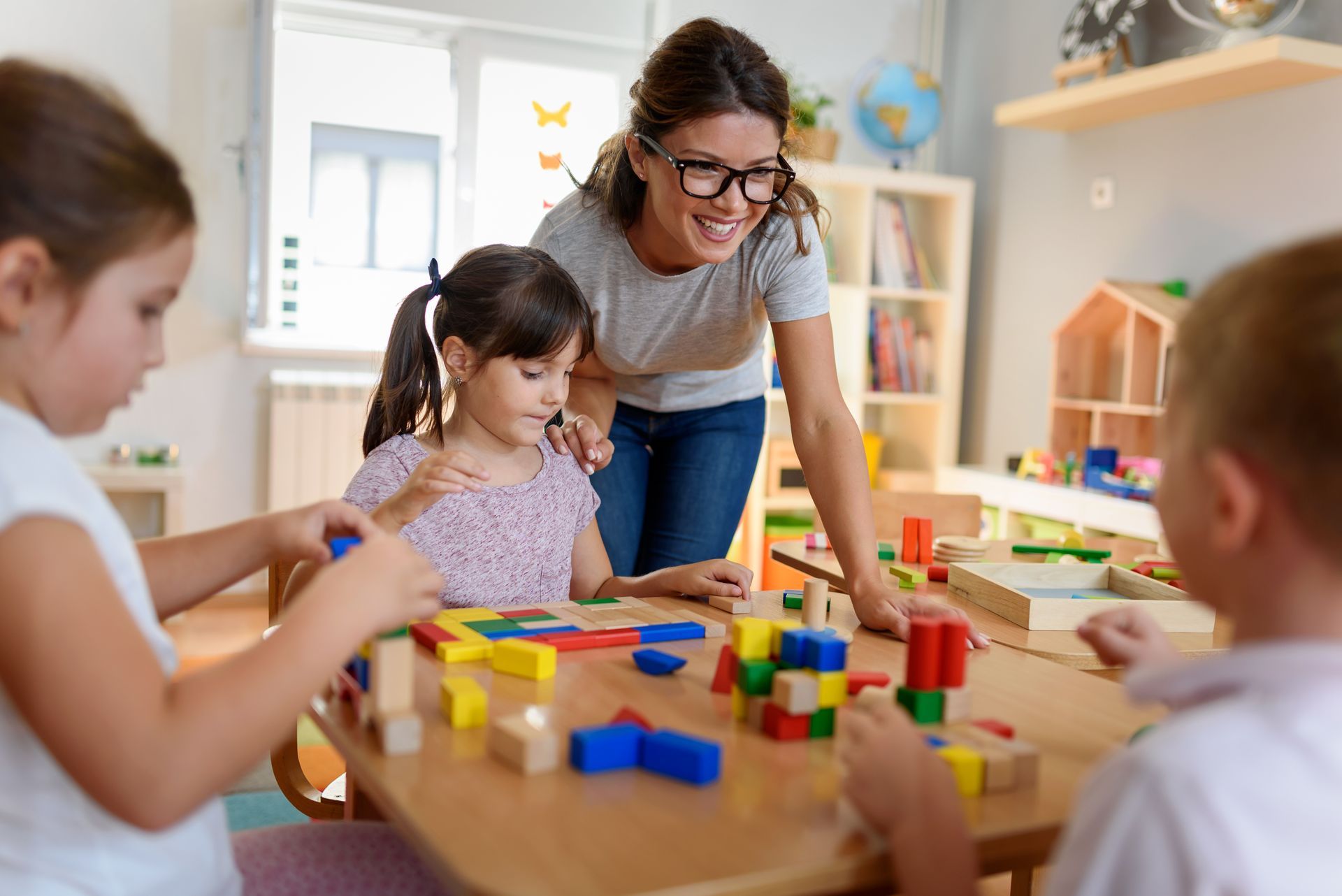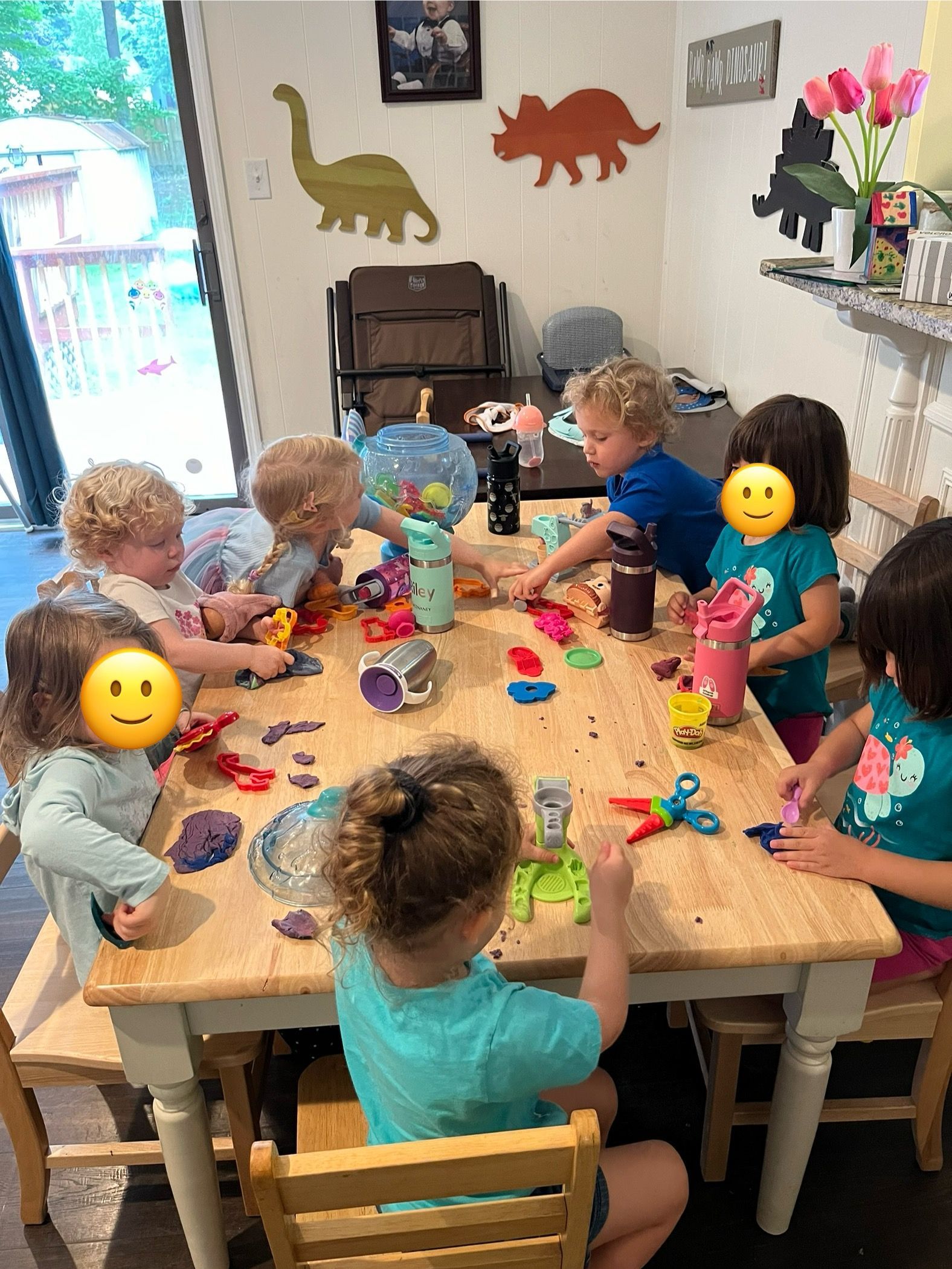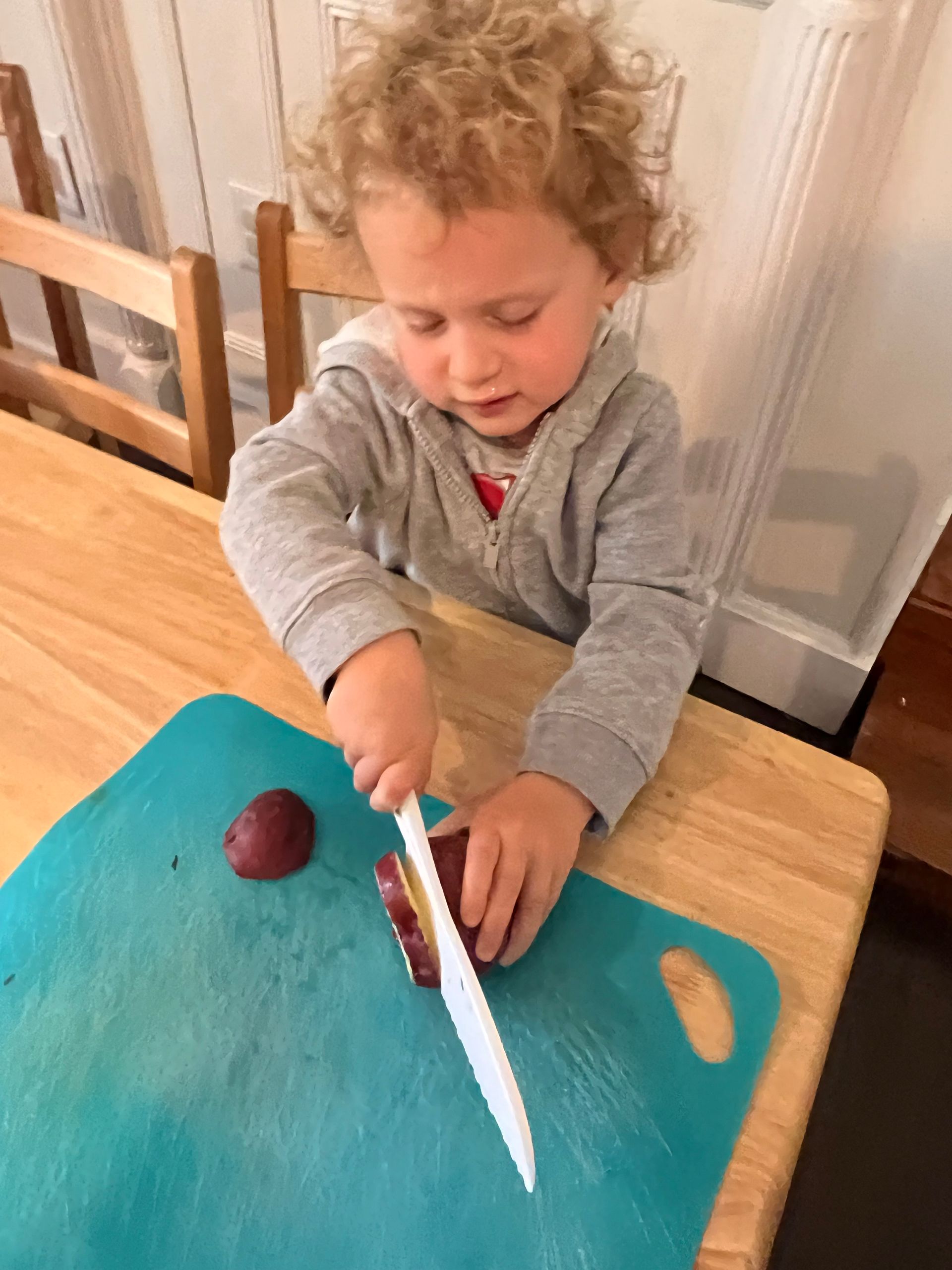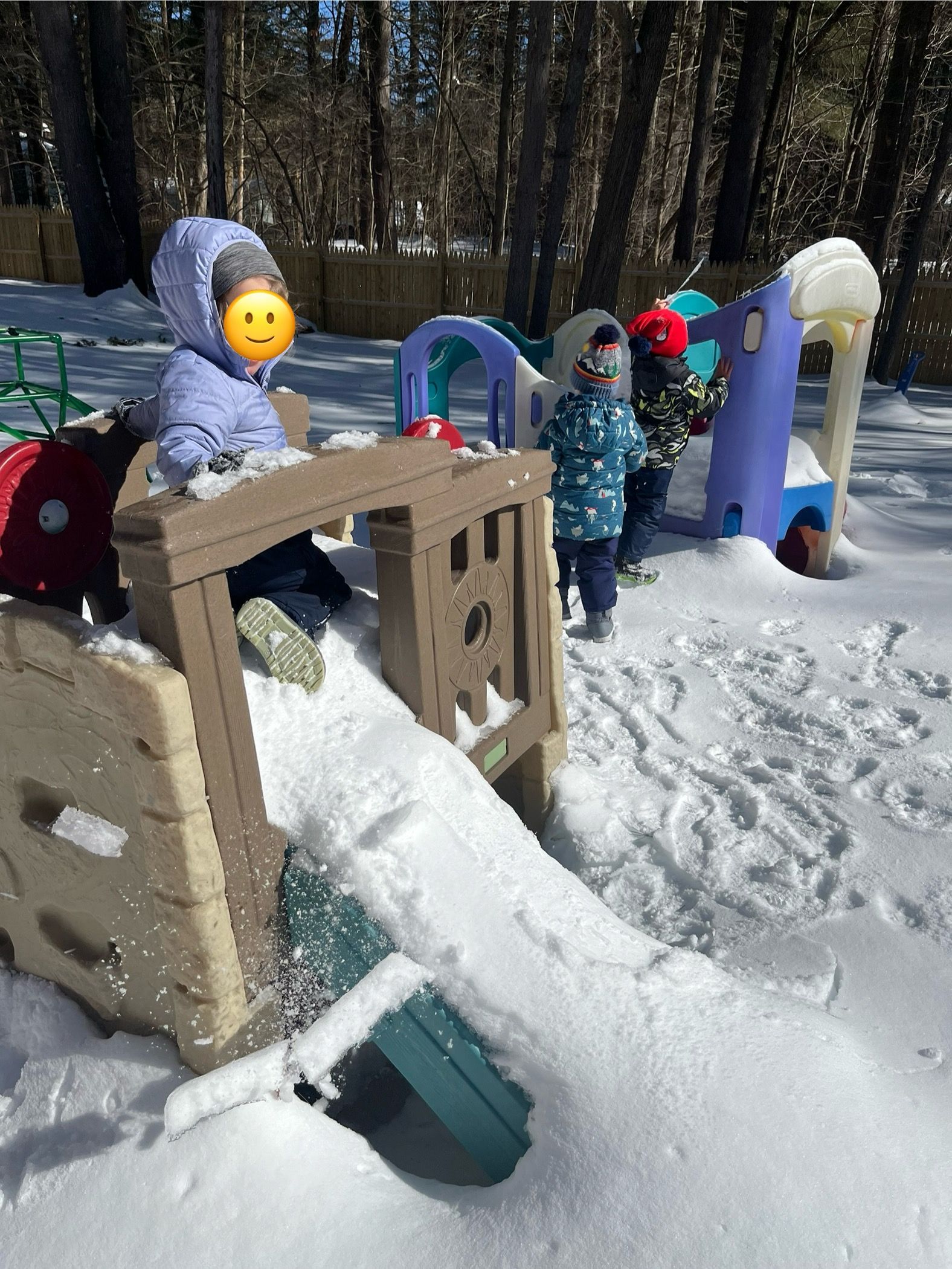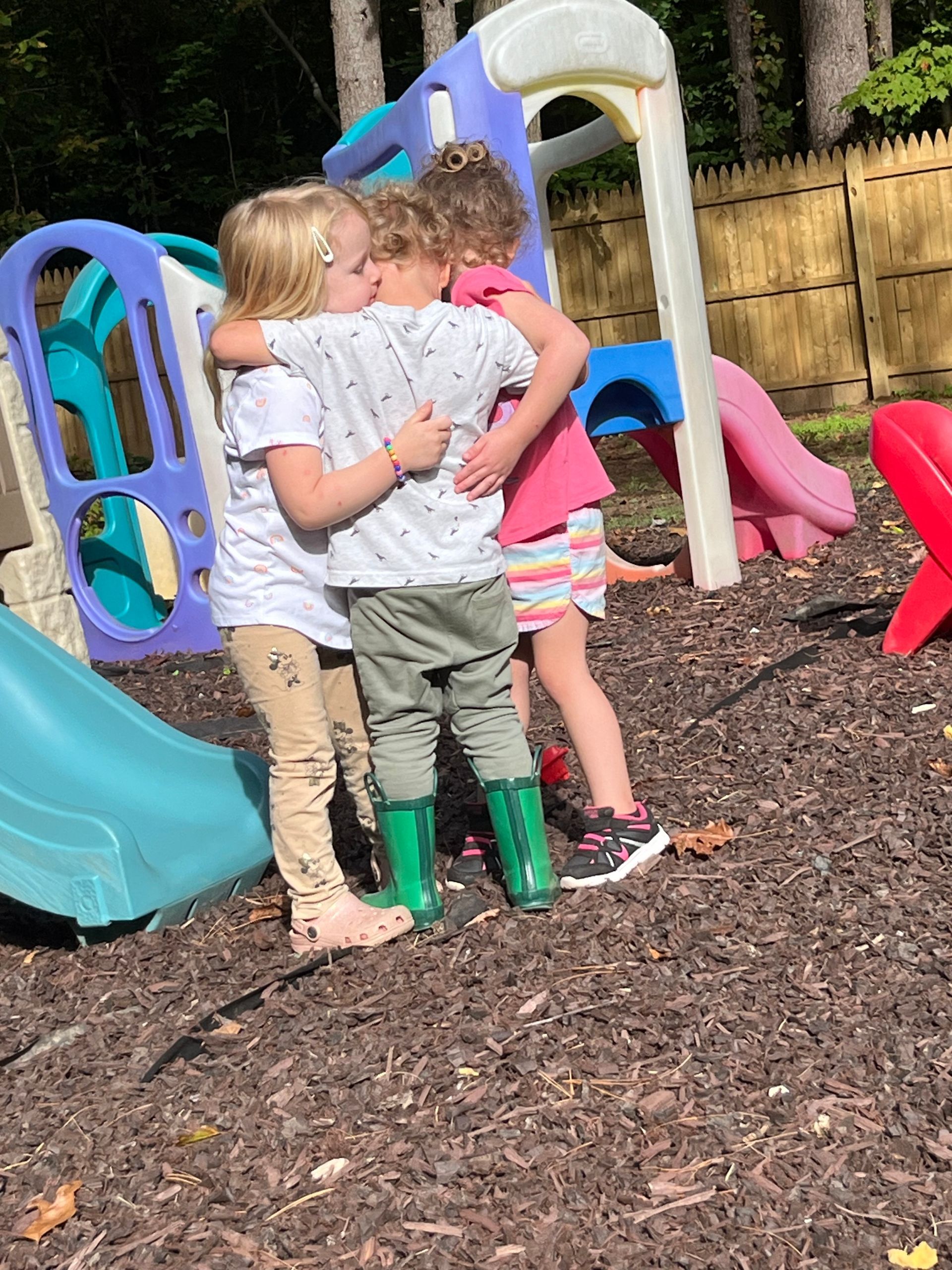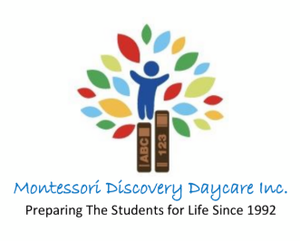Montessori Discovery Daycare Inc.
Nurturing Minds, Growing Hearts - Where Every Day is an Adventure in Learning!
About us
Montessori
Discovery Daycare Inc.
At Montessori Discovery Daycare Inc., we have proudly provided exceptional childcare for over 20 years, combining our expertise with a passion for nurturing young minds. As a licensed facility led by a dedicated educator with a Montessori teaching degree, an Early Childhood Education background, and extensive experience as a professional nanny, we create a warm and inviting environment where children can thrive. I’ve also raised my own three children—now in their 20s and 30s—and am a proud grandparent to two grandchildren, with another on the way in November. I am CPR/First Aid certified and MAT trained, further supporting our commitment to providing safe and attentive care. Our comprehensive services include daycare, a tailored preschool program, and infant care, ensuring every child's unique needs are met. We prioritize health with nutritious, homemade, organic meals and encourage outdoor exploration and play every day, weather permitting. Our mission is to foster creativity, curiosity, and meaningful friendships, giving children a solid foundation for their future learning adventures.
Daycare
Our daycare provides a safe, nurturing, and engaging environment where children are encouraged to explore, imagine, and discover the world around them. Through thoughtfully designed play-based learning experiences, we support each child’s natural curiosity and development—helping them build essential social, emotional, cognitive, and physical skills in a joyful and supportive setting.
Preschool Program
Our Preschool program sets the groundwork for instilling a love of learning in children. We support the individual child’s developing independence by providing an environment rich in opportunities for gross motor and fine motor development, language, grace and courtesy, allowing the child to grow and explore through discovery.
The environment provides activities concentrating on food, clothing, language, movement, and the senses. At this age, this is what children are most interested in. By helping children to move purposefully through their day, the Preschool programs achieve social harmony and peace, while encouraging children to engage in productive fun.
Appealing Materials
The extensive, concrete learning materials are designed to appeal to the children's deep interest, inspire activity, and promote coordination, concentration, and self-motivation. A Montessori classroom teaches children to care for their belongings. A Montessori teacher closely monitors student engagement, tracking progress and providing materials suitable to the next stage of development.
Enriching
Children are encouraged to explore each area in the classroom. With music, art, and movement all woven into the day. The curriculum is also enriched with units of study, group art projects, while nurturing budding development.
Accredited, Loving Teachers
Montessori Discovery Daycare’s Preschool programs place the social, emotional, and developmental needs of your child first. NAMC accredited teachers and loving assistants support your child through their earliest years.
Engage Their Growing Curiosity
Our Preschool program provides both indoor and outdoor environments that are age-appropriate for both emotional and physical health, and that invite extensive exploration. Children at this age are sensorial explorers, with a need for autonomy and functional independence. As a toddler would say, "I can do it myself!"
Independence
Independence is what being a toddler is all about.
Montessori Discovery Daycare is where we meet the emotional needs of young children while developing good manners, a sense of community, and respect for others. The child of this age absorbs everything around them.
Infant Care
We know the first year of life can have a big influence on a child’s success in the years that follow. That’s why our teachers foster Active Minds, Healthy Bodies, and Happy Hearts through a nurturing environment with plenty of cuddles. This includes literacy; communication and vocabulary skills to help your infant better express their needs; gross motor skills and sensory development; and emotional well-being.
Language and Literacy
Throughout the day, Infant teachers read books to your little one. They talk and sing with your child during feeding, diaper changes and playtime. These interactions provide one-to-one attention while also helping your baby begin to understand language and conversation.
Science, Engineering, Technology
Children enter the world as natural scientists, curious to observe and explore how the world works and their role in it. All the while, they’re honing their senses and developing skills like observing and problem solving.
Mathematics
While math may sound like a big topic for an infant, they’re learning about shapes as they interact with toys, they explore numbers as teachers count their toes and they use all their senses to explore.
Social Studies
Your baby is learning about the people around them. With the support of caring teachers, they learn how to interact with them and build relationships.
Physical Development
Motor skills are important building blocks for physical activity. That’s why your child’s teacher helps your infant focus on key small and large motor skills by reaching for and picking up objects, rolling, sitting, crawling and finally walking.
Health & Safety
The health and safety of children and staff has always been our top priority. We have high standards of safety and cleanliness while maintaining a caring and nurturing environment where children can thrive.
Balanced Menu: Nutrition
Infants have special dietary needs and teachers remain attentive to your little one’s feeding schedule. When it comes time for solid food, adjustments are made to prepare the food items offered that take into consideration their development, with parent or guardian permission.
Harmony & Heart: Music, Movement & Literature
Through music, movement and fun stories featuring the Montessori Discovery Daycare Friends, our program helps your baby learn skills like patience, and curiosity.
Life & Social Skills
Every day, Montessori Discovery Daycare teachers foster belongingness to help children feel valued and included. In turn, those children are better equipped to show kindness and compassion to others.
Creative Arts & Expression
Exploring the arts is a great way to stimulate your children’s imagination and creative thinking. In our creative arts programs, your infant listens and moves to music, explores various art materials and expresses themselves creatively.
Nutritious, Homemade, Organic Meals
Our nutritious, homemade, organic meals ensure that children receive healthy, balanced, and delicious food every day. We carefully plan our menus to include fresh, high-quality ingredients that support growing bodies and developing minds. Mealtimes are also an opportunity to encourage positive eating habits, introduce new flavors, and promote a sense of community as children gather together to share and enjoy wholesome food in a warm and welcoming atmosphere.
Outdoor Activities
Weather permitting, we enjoy outdoor play every day, providing children with the opportunity to move their bodies, strengthen their gross motor skills, and soak up fresh air and sunshine. Our outdoor time encourages physical activity, imaginative play, and meaningful connections with nature—whether it’s exploring the changing seasons, discovering bugs in the grass, or simply running and laughing with friends. These daily outdoor experiences help foster a sense of wonder, build resilience, and support overall well-being.
Play and Friendship
At our daycare, children thrive through joyful play and a wide variety of fun, enriching experiences shared with their peers. Whether they’re building towers together, engaging in imaginative role-play, or participating in group games and creative projects, every moment is an opportunity to develop important social skills like cooperation, communication, empathy, and problem-solving. These playful interactions not only foster meaningful friendships but also create lasting memories that help shape a strong sense of community and confidence in each child.
Enroll Now!
Your child deserves a nurturing environment filled with joy and discovery. Choose us for a dedicated, experienced team committed to fostering a love for learning!
Testimonials
What Our Clients Say
★★★★★
- Jessica R.
"Montessori Discovery Daycare has been amazing for our daughter! The caring staff and Montessori approach have fostered her love for learning!"
★★★★★
- Mark T.
"Finding a daycare that feels like home was crucial, and Montessori Discovery exceeded our expectations! My son is engaged, happy, and well-fed!"
★★★★★
- Linda S.
"I highly recommend Montessori Discovery Daycare! My daughter loves it, makes friends, and learns valuable skills in a safe and fun environment!"
Request A Service
Send Us A Message
Have a question? We’re here to help. Send us a message and we’ll be in touch.
